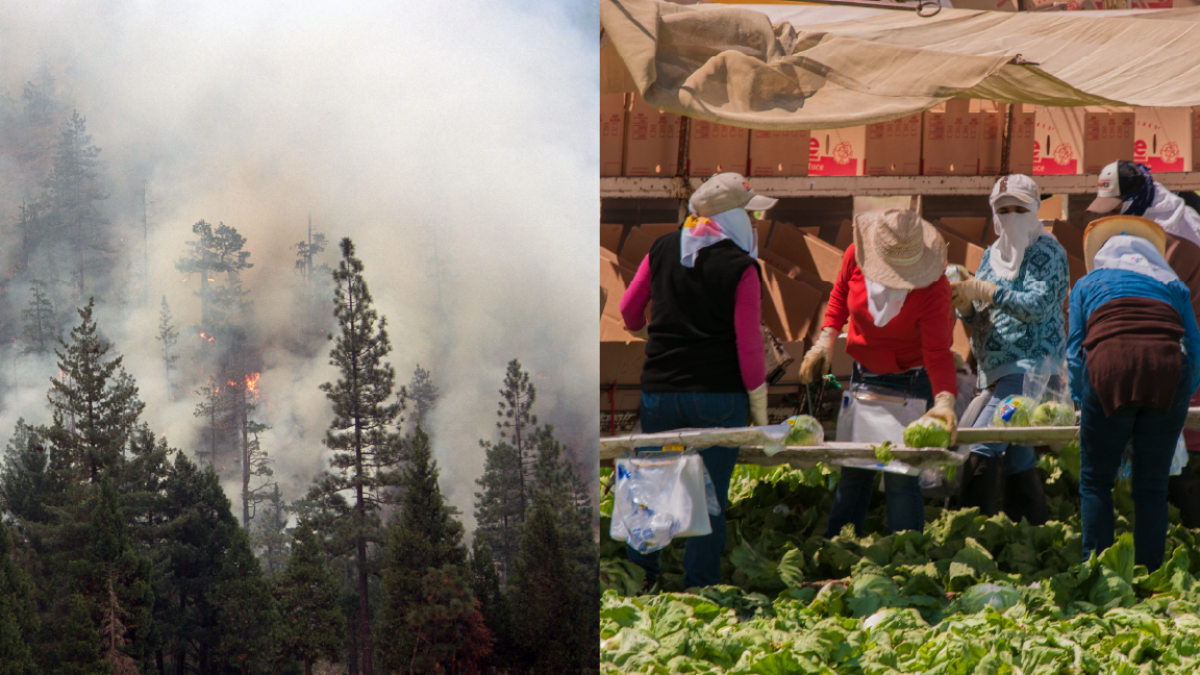Two teams of researchers in the UW Department of Environmental & Occupational Health Sciences (DEOHS) and their partners have been awarded grants from the University of Washington Population Health Initiative to support research on the health impacts of wildfire smoke and extreme heat.
The total value of all nine awards is approximately $300,000, including $213,000 from the initiative plus additional school, college and departmental matching funds.
“The projects we funded collectively touch all three of our pillars of population health—human health, environmental resilience, and social and economic equity—and have the potential to develop findings that will improve health and well-being both locally and globally,” said Ali H. Mokdad, UW’s chief strategy officer for population health and professor of health metrics sciences.

Higher-resolution predictions of wildfire smoke exposure
To address wildfire smoke’s impacts on health and environmental justice, scientists need to accurately determine people’s levels of exposure to the harmful fine particulate matter (PM 2.5) in smoke. So far, this has been a challenge. Now a new DEOHS-led project will use satellite and low-cost sensor data to build a framework for daily, kilometer-scale estimates of exposure to PM 2.5 in Washington state.
DEOHS Postdoctoral Fellow Jianzhao Bi, Professor Joel Kaufman and Assistant Professor Nicole Errett will collaborate with researchers in the UW Department of Biostatistics and the nonprofit Clean Air Methow to develop the framework using a data set collected in Washington’s Methow Valley. Eventually, they plan to extend the model to the entire western US.
The large-scale wildfire smoke data will support community-based applications and population-based health research. They could allow local agencies to identify communities disproportionately affected by wildfire smoke, facilitate early warning systems and improve large-scale epidemiological analyses of the harmful effects of wildfire smoke.
Additional investigators are Adam Szpiro of the Department of Biostatistics and Elizabeth Gribble Walker of Clean Air Methow.
Understanding extreme heat risks for marginalized communities
As extreme heat events become more common in the Pacific Northwest, public health and government officials must tailor their health response plans to help communities weather these crises. This is especially important for historically marginalized groups, who may have unique exposure pathways and health impacts during heat events.
DEOHS Postdoctoral Fellow Cassandra Jean, Assistant Professor Nicole Errett and their partners at the Evans School, the Department of Urban Design and Planning and the Swinomish Indian Tribal Community plan to investigate these exposure pathways and health impacts among Black, Latinx and tribal communities in Washington State.
Using the health belief model, they will identify how culture and social conditions affect extreme heat risk and risk perceptions to inform actionable strategies to protect and serve Black, Indigeous and people of color (BIPOC) communities.
Additional investigators are Ann Bostrom of the Evans School of Public Policy & Governance; Dan Abramson of the Department of Urban Design and Planning; and Jamie Donatuto of the Swinomish Indian Tribal Community.




